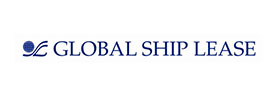What We Do
Who We are
Global Ship Lease (GSL) is a containership owner, leasing ships to container shipping companies under industry-standard, fixed-rate time charters. The Company is a Marshall Islands Corporation, with offices in London and Athens, and has been listed on the New York Stock Exchange since August 15, 2008, under the ticker NYSE:GSL.
We focus on mid-size Post-Panamax and smaller containerships, the workhorses of the global fleet, which tend to serve the faster-growing non-Mainlane and intra-regional trades collectively representing over 70% of global containerized trade volumes.
Our goal is to provide our liner operator customers with well-specified, operationally flexible, reliable, fuel-efficient, high-reefer capacity, low slot cost containerships to support their operations within the highly competitive global logistics industry.
We take a partnership approach with our customers, providing flexible chartering solutions which enable them to free up capital and management resources to focus on other strategic priorities.
As a containership owner, our business is both pro-cyclical - with chartered tonnage used as a growth platform by liner shipping companies, and counter-cyclical - with sale and lease-back structures used by liner companies as a balance sheet management tool.
Our investment model seeks to combine strong, longer-term contract cover with selective shorter-term exposure, providing a firm base with downside protection and forward visibility on cash flows, while also offering access to upside earnings potential in a highly cyclical market.
We aim to grow selectively, opportunistically, and always on a value-accretive basis. Our growth track record includes both organic acquisitions and a transformative strategic combination, completed in Q4 2018, which doubled the size of our fleet, materially improved our capital structure, and substantially enhanced our commercial footprint and competitive positioning.
Our Industry
Our Industry
80% of global trade is carried by sea.
Container shipping is the most convenient and cost-effective way to transport a wide range of cargoes, predominantly a diverse selection of consumer, manufactured, semi-manufactured, and perishable goods.
Containerization is a low-carbon form of transportation, with Green House Gas (GHG) emissions per ton-mile of cargo carried significantly lower than that for other common modes of freight transport such as air, road, and rail. As a key part of the global supply chain, container shipping is also a contributor to the UN’s Sustainable Development Goals - particularly those associated with poverty alleviation, economic growth, and infrastructure.
The containerized supply chain extends throughout the world. Mainlane trades are those linking the major manufacturing economies in Asia with the major consumer economies in North America (the Transpacific trades) and Europe (the Asia-Europe trades), and those linking Europe with the Americas (the Transatlantic trades). These trades tend to be served by the largest containerships on the water. However, over 70% of global containerized volumes are in the non-Mainlane trades, with intra-regional trades - of which the largest is Intra-Asia - representing almost 40%. These non-Mainlane and intra-regional trades are predominantly served by mid-sized and smaller containerships, such as those focused upon by Global Ship Lease.
Growth in containerized trade is linked to consumer-led demand for goods and thereby to regional economic growth. Historically, underlying growth was boosted by both the containerization of breakbulk goods, including refrigerated cargoes, and the relocation of manufacturing from developed economies such as those in Europe and North America, to lower cost regions, most notably in Asia. Of these, the continued containerization of refrigerated (or ‘reefer’) cargoes is expected to outpace overall container trade growth.
Within the container shipping industry, key participants include shippers, liner shipping companies and containership owners:
- Shippers are the senders and receivers (importers and exporters) of containerized cargo.
- Liner shipping companies (also referred to as lines, liner operators, carriers, and containership operators) are logistics service providers responsible for the seaborne, and often also inland, transportation of containerized goods; they negotiate freight rates with shippers themselves, or with third parties such as freight forwarders/consolidators. Liner companies either operate ships that they themselves own, or lease (charter) vessels from containership owners. In the context of our business, liner operators are most commonly referred to as charterers.
- Containership owners (also referred to as owners, charter-owners, and containership lessors) own containerships and lease, or charter, them out to liner companies. The proportion of global fleet capacity provided by containership owners/lessors increased from around 16% in 1995 to approximately 54% by the end of 2018 – which is broadly where it remains today.
In the containership charter market, leases are most often structured as time charters. Under a time charter, the operating costs of the ship, including crew costs - but with the important exception of fuel costs, which are paid for by the charterer or lessee - are borne by the lessor or containership owner. Charter periods can vary in length: the short term, or spot, market generally refers to charter fixtures of 12 months or less, while longer term charters refer to multi-year fixtures, with charters of five years or more not uncommon.
Global Ship Lease is a containership owner which provides liner shipping companies with high-specification, mid-size and smaller containerships, employed under a balanced mix of longer term and short-term charters.
Our Business Model
Containership Owning (Leasing) vs. Container Shipping (Freight)
Role of Containership Owners (Lessors)
- Own and manage vessels which are leased to liner companies under long-term and short-term charters (leases)
- Responsible for maintenance, crewing, lubricants, insurance and daily technical operations
- No fuel cost or direct exposure to freight market
- Cash flows backed by charters

Role of Liner Shipping Companies (Lessees)
- Source and aggregate cargo from shippers
- Load and discharge containers
- Ocean carriage
- Land-based logistics
- Responsible for fuel costs
- Profitable over time, but volatile cash flows; substantial capital needs
Over half of the global containership fleet is owned by containership owners